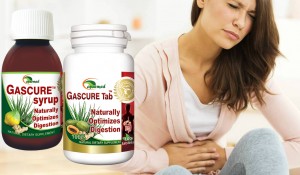Diets we consume are vital for the body, containing essential nutrients: carbohydrates, lipids, proteins, water, vitamins and minerals. All substances present in foods are used by the body from which assailable molecules are synthesized. The role of digestive system consists of converting food to into monosaccharaides, fatty acids and amino acids, the stage at which they can be easily assimilated.
But what happens when the stomach pain and burning don’t let you enjoy your favorite foods? It is important to identify and understand the symptoms, to differentiate diseases such as gastritis and other conditions affecting the upper abdominal zone (diseases related to gallbladder or pancreas).
What Is Gastritis and Symptoms of Gastritis
Gastritis is a disorder of the gastric mucosa, characterized by its inflammation and the appearance of lesions, with the passage of time it may heal or else, it may worsen and leads to other complications such as bleeding and deep wounds. Gastritis occurs due to increased gastric secretions (stomach inflammation) associated with irritation of the gastric mucosa by inadequate food or medications. The human body has a natural tendency of seasonally increasing gastric acidity mainly in spring and autumn.
Gastritis often has no symptoms. Sometimes manifested by a burning sensation in the upper abdomen, known as heartburn or by nausea, vomiting and pain in the chest. Pain is exacerbated by copious meals or stimulant diet such as coffee, alcohol, fatty or sour substances, heavy dishes, fried foods etc.
ETIOLOGY OF GASTRITIS
The causes that precipitate largely in gastritis evolution are inadequate food quantity and/or quality (irregular meals, excess diet, cold or irritating foods abused fat fried, smoked food, and concentrated sweets). Also frequent respiratory infections, biliary-pancreatic reflux into the stomach, hepatobiliary problems, chronic pancreatitis, chronic renal failure, rheumatoid arthritis play a significant role in gastritis.
 Besides stress and mental tension, Helicobacter pylori infection, excessive alcohol consumption, use of drugs facilitates the development of gastritis. While remained untreated, gastritis progresses to ulcer, which occurs when it forms the lesion, leading to erosion of gastric mucosa due highly acidic gastric secretions. From the evolution point of view gastritis are of acute and chronic types.
Besides stress and mental tension, Helicobacter pylori infection, excessive alcohol consumption, use of drugs facilitates the development of gastritis. While remained untreated, gastritis progresses to ulcer, which occurs when it forms the lesion, leading to erosion of gastric mucosa due highly acidic gastric secretions. From the evolution point of view gastritis are of acute and chronic types.
The occurrence of acute gastritis usually signifies not only an imbalance between aggressive factors and protective resources, but also the inability of local biological systems to maintain the integrity of the gastric mucosa.
Chronic gastritis are the inflammations of the stomach with long term evolution, characterized by extension of the superficial or deep inflammatory process with destruction of glandular epithelium (atrophic gastritis) or gastric mucosa (gastric atrophy). Chronic gastritis is most often linked to chronic infection with Helicobacter pylori. This gram negative bacterium has an amazing ability to infect and colonizing stomach. It can survive in the highly acidic environment of the stomach, where the PH can reach a value of 1 and inhabits in the gastric mucosa for an impressive period of time. Infection can be evolved since the childhood.
Prevention and Treatment
As we know, it is easier to prevent than to treat. The diet should be varied and should consist of well tolerated foods. It is better to limit/exclude the diet consisting of stomach irritants such as sauces, preserves, condiments, concentrated sweets etc. The recommended diet includes: milk, beef and boiled chicken, vegetable fat, fresh butter, boiled egg, vegetable soup. Other recommended foods are properly prepared white pasta, white fish, cottage cheese, curd cheese salted and unsalted, zucchini, potatoes, carrots, peas, all fruits except citrus fruits, oil, tea, fresh fruit juices, cream, stewed fruit, puddings of flour and sweets based cheese. Sugar is recommended to be consumed in moderation. Meals should be eaten at regular intervals of hours, followed by rest and warm compression on the stomach region can be beneficial.
Treatment of factors/symptoms causing diseases consists primarily on removing the causes of irritation or ulceration of the gastric mucosa. Too cold or too hot foods or liquids, spices, medicines causing gastric irritations are recommended to be avoided. Eliminating the chances of occurrences of dental infection, tonsils, sinuses should also be taken into consideration.
As hygienic-dietary treatment, it is recommended to comply with an orderly lifestyle, compliance with hours of sleep and proper time of waking up as well as avoiding physical and mental overstress. Active recreation and a balanced mental state are important both for maintaining appetite and to enhance the healing process in case of gastritis.
Natural plant remedies are also useful in gastritis problem due to their calming, healing and regenerating benefits on gastric mucosa. Ayurmed brand ayurvedic natural dietary supplement GASCURE tablets, stimulates gastric and hepatobiliary secretions alleviating the discomforts caused by overeating, alleviating nausea, thus contributing to the proper functioning of digestion and intestinal absorption. Protects the gastric mucosa, regulates bowel, is an adjuvant in case of oral candidiasis and provides antioxidant benefits. Can be administered both in adults and children aged over 5 years.
Gastric hyperacidity crises manifested by burning sensations in the stomach, acid regurgitation in esophagus and inefficient digestion can be tackled easily with the help of Ayurmed brand natural dietary supplement GASCURE syrup. It acts gently on gastric glands, protecting the gastric mucosa by acting as a balm on existing gastric lesions, stops their further expansion, helps restore affected gastric and intestinal epithelium. At the same time, GASCURE syrup regulates gastric and hepatobiliary secretion and provides a normalizing effect on digestion.




